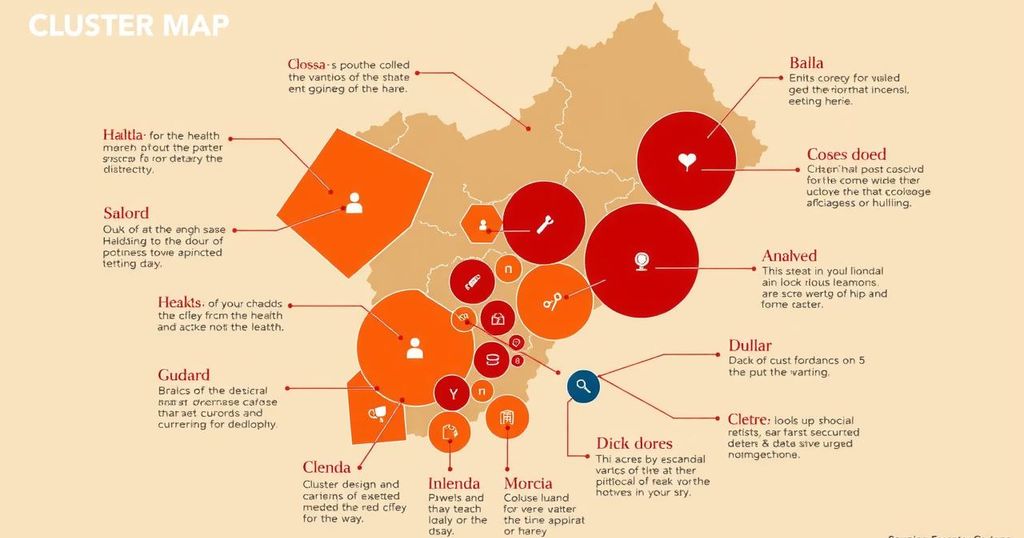Ebola, CWD, and Healthcare Insights: Recent Health Updates

The WHO has reported a second Ebola Sudan cluster in Uganda, with three confirmed and two probable cases from links to a 4-year-old child who died. CWD has been identified in Kaufman County, Texas, affecting two deer at a farming facility. Additionally, a study indicates that sleep debt and night shifts significantly increase infection risk among nurses in Norway.
On March 8, the World Health Organization (WHO) provided an update regarding a second cluster of the Ebola Sudan outbreak in Uganda, which now includes three confirmed and two probable cases. This situation has prompted heightened surveillance due to concerns about possible undetected transmission. All reported instances have connections to a 4-year-old child, identified as the tenth case, who unfortunately succumbed to the virus on February 25.
The WHO disclosed that the child’s mother, who passed away after giving birth in a hospital, experienced acute illness. Both she and her baby, who also died shortly after birth, were untested. Their fatalities are considered probable cases, with the family residing in Ntoroko district, near the border with the Democratic Republic of the Congo.
The mother reportedly exhibited symptoms starting on January 22, dying on January 6, while her newborn died on January 12. The WHO emphasized that these three recent fatalities were not subjected to supervised burials. The case count rose further with the confirmation of two additional women who had contact with the child and his mother, both of whom have been hospitalized in Ebola treatment centers.
As of March 2, 192 new contacts related to this second cluster have been identified, undergoing monitoring. Notably, these contacts are distributed between Kampala and Wakiso district in eastern Uganda, alongside Ntoroko district to the west. This ongoing outbreak marks the sixth instance of the Ebola Sudan strain in Uganda, with a current case fatality rate at 29%, which represents a decrease compared to the 41% to 70% observed in previous outbreaks.
In a separate health update, chronic wasting disease (CWD) has been detected for the first time in Kaufman County, Texas. The Texas Parks and Wildlife Department (TPWD) confirmed that two white-tailed deer—a 20-month-old male and an 8-month-old female—tested positive for this fatal neurological condition during mandatory surveillance activities. The CWD detection occurred in a deer farming facility located in the northeastern segment of the state, near Dallas.
The TPWD emphasized that all permitted deer breeding facilities are obligated to test all mortalities and perform pre-movement ante-mortem testing to adhere to surveillance and testing mandates. Following the positive tests, quarantine measures were implemented by the Texas Animal Health Commission (TAHC) to prevent any potential spread of the disease from the facility.
CWD is attributed to prions, which are infectious misfolded proteins that can transmit between cervids through bodily fluids. Once introduced into the environment, these prions can endure harsh conditions and remain persistent over time. Since its recognition in Colorado in 1967, CWD has been reported in numerous U.S. states and several countries worldwide.
In further findings from a study involving Norwegian nurses, researchers at Haukeland University Hospital in Bergen reported that sleep deprivation and night work have been associated with an increased susceptibility to infections such as the common cold, pneumonia/bronchitis, sinusitis, and gastrointestinal issues. This study surveyed 1,335 nurses, revealing that 25% of the global workforce engages in shift work, which has been linked to various health complications.
The analysis indicated a concerning correlation between severe sleep debt and nearly a fourfold increase in pneumonia risk, presenting dose-dependent associations for other infections as well. With these findings published recently in Chronobiology International, the study underscores the health challenges faced by shift workers, particularly in essential service roles.
In summary, the WHO has raised alarms regarding a second cluster of Ebola cases in Uganda, prompting intensified monitoring following links to previous fatalities. Meanwhile, CWD has reached a deer farm in Kaufman County, Texas, necessitating quarantine measures to mitigate spread. Furthermore, a study among nurses in Norway highlights the detrimental health impacts of sleep deprivation and night shifts, emphasizing the necessity for reform to protect this workforce from increased infection risks.
Original Source: www.cidrap.umn.edu







